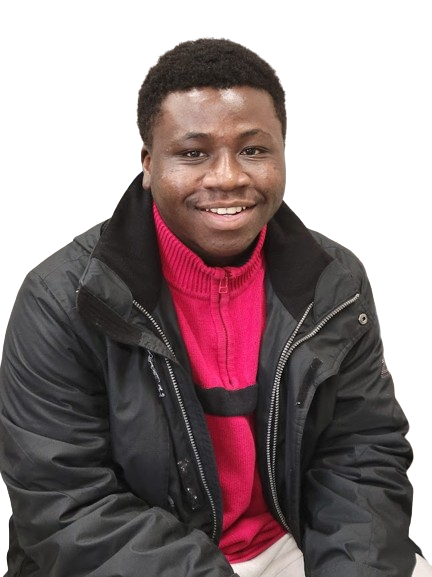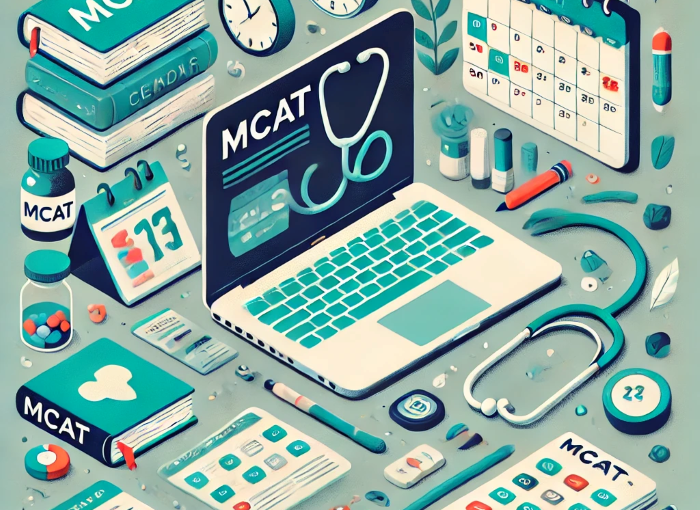The Medical College Admission Test (MCAT) is one of the most critical steps for aspiring medical students. This challenging, standardized exam is designed to test your knowledge of the sciences, analytical thinking, and critical reasoning skills, as well as your understanding of behavioral sciences. Preparing for the MCAT requires strategy, discipline, and the right resources. Here’s a guide to help you navigate your preparation and achieve your best score.
Understand the MCAT Structure and Content
The MCAT is a comprehensive exam that assesses your knowledge and reasoning in four main sections:
- Chemical and Physical Foundations of Biological Systems: This section focuses on chemistry, physics, and biochemistry.
- Critical Analysis and Reasoning Skills (CARS): This part tests reading comprehension, analytical skills, and critical thinking.
- Biological and Biochemical Foundations of Living Systems: This section focuses on biology, biochemistry, and organic chemistry.
- Psychological, Social, and Biological Foundations of Behavior: This section includes psychology, sociology, and human behavior concepts.
Each section has a time limit, and understanding the structure helps you know what to expect and plan your time accordingly. Familiarizing yourself with the exam’s format and question types is the first step toward effective preparation.
Create a Study Schedule
The MCAT requires an organized and disciplined study plan, typically involving 3-6 months of dedicated preparation. Begin by evaluating your current strengths and weaknesses across each section. Once you know where to focus, create a weekly study schedule that includes:
- Content Review: Allocate time for each subject and work on the topics you’re less familiar with.
- Practice Questions: Integrate practice questions to apply what you’ve learned and identify areas for improvement.
- Full-Length Practice Exams: Aim to complete full-length practice tests every few weeks to simulate the actual test day experience. Gradually increase your practice frequency as you approach the test date.
Having a balanced schedule that includes both content review and practice will help you build confidence and improve your time management.
Use Quality Study Materials
Choosing the right study materials is essential. Here are some resources that can help you prepare effectively:
- Official AAMC Materials: The Association of American Medical Colleges (AAMC) offers official practice exams, question packs, and section-specific question sets. These materials closely mimic the actual exam and are invaluable for realistic practice.
- Kaplan and Princeton Review: These companies offer comprehensive review books, question banks, and online courses. They’re popular choices for structured content review.
- Quizlet: Quizlet is particularly helpful for memorizing terminology and key concepts in psychology, biology, and biochemistry.
- Bozeman Science on YouTube: This YouTube channel provides concise, informative videos that can help you grasp difficult concepts in biology and chemistry.
- Anki Flashcards: Anki is great for spaced repetition, a technique proven to enhance long-term retention. Many students use pre-made MCAT flashcard decks to review high-yield topics consistently.
Practice, Practice, Practice
Practice is key to succeeding on the MCAT. Start by working on section-specific questions to improve your understanding and pacing. As you progress, begin taking full-length practice exams under timed conditions. This not only builds stamina but also helps you refine your pacing, which is crucial since the MCAT is a long exam (about 7.5 hours with breaks). After each practice exam, spend time reviewing every question, especially the ones you got wrong or guessed on. This process helps you identify weak areas and better understand your mistakes, making your next attempt more effective.
Master the Critical Analysis and Reasoning Skills (CARS) Section
The CARS section can be one of the trickiest parts of the MCAT since it requires strong reading comprehension and critical thinking skills rather than scientific knowledge. Here are some tips to excel in this section:
- Practice Reading Daily: Regularly read complex articles in subjects like philosophy, history, and sociology to build reading stamina and analytical skills.
- Work on Timing: Practice answering CARS passages under timed conditions to improve your pacing.
- Focus on the Passage: Don’t rely on external knowledge; the answers are always within the passage. Read carefully and practice identifying the main ideas, arguments, and assumptions.
Build a Support System and Stay Motivated
Preparing for the MCAT can be overwhelming, so it’s helpful to have a support system. Study groups, online forums like Reddit’s r/MCAT, or even a study partner can provide motivation, accountability, and shared resources. Being part of a community can help you stay motivated and remind you that you’re not in it alone. Additionally, don’t hesitate to seek advice from those who have already taken the MCAT. They can share study strategies, tips for test day, and suggestions on managing stress and nerves.
Take Care of Your Physical and Mental Health
Studying for the MCAT can be intense, so it’s essential to prioritize your health. Make sure to incorporate these habits into your routine:
- Sleep Well: Aim for 7-8 hours of sleep to ensure your brain is well-rested and ready for each day of study.
- Exercise Regularly: Physical activity boosts mood, energy, and focus—qualities that can significantly benefit your study sessions.
- Practice Stress-Relief Techniques: Techniques like mindfulness, deep breathing exercises, and short meditation sessions can help you manage stress and stay focused.
Remember that preparing for the MCAT is a marathon, not a sprint. Taking care of your well-being will help you stay resilient throughout the journey.
Plan for Test Day
As test day approaches, familiarize yourself with the testing center’s rules and regulations. Bring required identification, approved snacks, and any necessary items like earplugs. Consider doing a test run to the center a day or two before to ensure you know the route and can reduce test-day anxiety.
On test day, remember to take the scheduled breaks to stay refreshed. Don’t dwell on difficult questions; mark them and move on, coming back if you have time at the end. Staying calm and focused will help you perform at your best.
Conclusion: Your Path to Success
Preparing for the MCAT requires dedication, discipline, and strategy. By creating a structured study plan, utilizing quality resources, and prioritizing your mental and physical health, you can set yourself up for success. The journey may be challenging, but remember that every hour of study brings you closer to your goal. Stay focused, trust the process, and believe in your abilities—you’ve got this!

Dennis Boakye ’26 is a rising junior with a major in Neuroscience and a minor in Mathematics. He is also a co-president of the Neurolawrence Club and the Synthetic Biology Club and the treasurer for the American Medical Student Association (AMSA, Lawrence Chapter) and the Black Student Union (BSU). Dennis is the current career peer educator for the Health and Medicinal Professions (HMP) and the Physical and Natural Sciences (PHN) career communities at Lawrence University. Connect with Dennis on LinkedIn.
